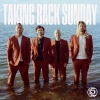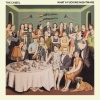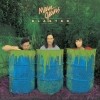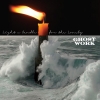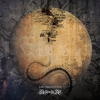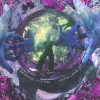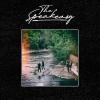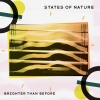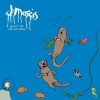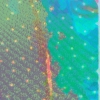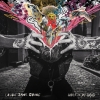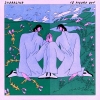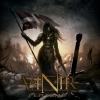Gig Reviews
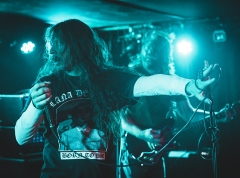
Cult Leader
Stengade, Copenhagen, DEN - 15/4
Album Reviews
Converge
Previous Nextauthor PP date 03/06/13
In one of the longest and most in-depth interviews ever for Rockfreaks.net, PP sat down with the living legend of the hardcore scene, Jacob Bannon of Converge in December to dissect his lengthy and analytical thoughts on Converge and their status within the hardcore scene. Spanning over 40 minutes in length, a well-articulated Bannon goes into more detail than you can ever imagine about practically everything Converge related, whether their latest album or their classics, their merchandise, their growth as a band through different eras, and much, much more.
RF.net: How do you feel it compares to "Axe To Fall" or "No Heroes"?
Jacob: I don't really compare them. They're just all records. To me, every time we do a record, it's a record. It's a bunch of songs that are relevant to that point of time in our lives, and us as artists at that point in our lives, and that's pretty much it. Hopefully we continue to evolve and progress with every record.
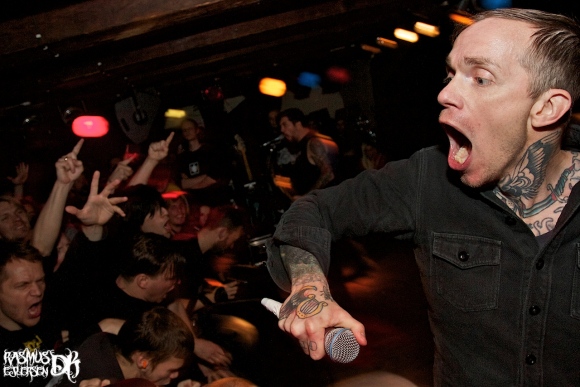
RF.net: How do you get yourself into the same sort of mood, because it really does sounds exactly the same as it does in a live environment?
Jacob: It's because it's real. The mood doesn't change. It's not a character that's turned on or off. It's personal songs about personal subject matters that are very real and very exposed emotionally at that point in time. It's not difficult, because it's real.
So yeah, I don't really think about...I guess what professional critics and what listeners really think about what we're doing. Because it's not really something that's up for debate. You know, if someone doesn't like it, that's okay, there are plenty of people who don't like abrasive music. It's a very small, minute community in the world. So if we were concerned with what people thought about our band, we would probably be playing pop music, and playing popular styles. It doesn't really affect us.
We don't really search out reviews or press, or anything like that. We try not to see those things, just because we're all pretty confident in what we're doing and why we're doing it. Everyone else's opinions will always differ, like for example your opinions of where we zig and zag in our musical direction or progression, or whatever, that's entirely up to you. And that's your valid opinion. And somebody else will probably have one that's slightly different. And it's all different from probably our band's. [chuckles] but that's okay. That's the beauty of it. It just means we just don't pay much attention to those things.
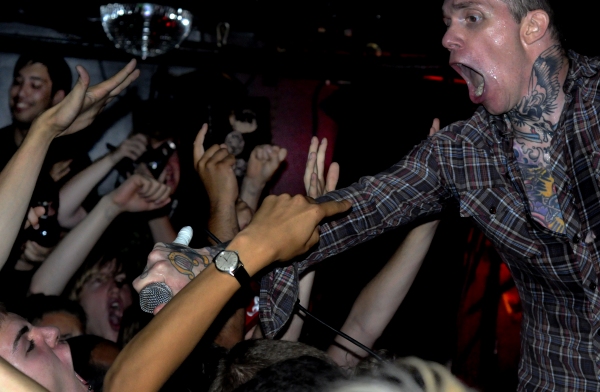
RF.net: Would you say then that people from the outside, whether it's fans, critics, or whoever else, then sort of elevate you guys to a higher status?
Jacob: Not necessarily. The way we perceive it is that we're just people, and our songs are just songs to us. The value, the intrinsic value that people assign to those things once we create them, that's entirely up to them. That has nothing to do with us, we're still the same dudes. We're still the same people as we were when we were teenagers and started this band. We're playing the same venues, playing the same shit. It's the same stuff. But we wouldn't have it any other way. I'm very grateful for the attention that people give us, but it's just not the intention. And I think that if we started thinking about it as an intention like "hey, let's write a record that everyone's gonna talk about", then things cease being genuine. We just wanna write good songs that move us. If people connect with that, that's awesome. If they connect with it, hopefully that becomes, I guess as you defined it, a legacy or we become pioneers or something like that. But that kind of reflection I think is also for people who are done making music, and done making art.
We've been a band for a long time. I'm not saying that we're gonna be a band for another 20 years or anything like that. But we're all very involved in this music community. It gives us a sense of purpose in a variety of ways. We appreciate what it gave us as teenagers, and we appreciate what it gives us now, and the outlet that it gives us. We try to share that kind of magic and that kind of experience that we had with people now, as they take in music.
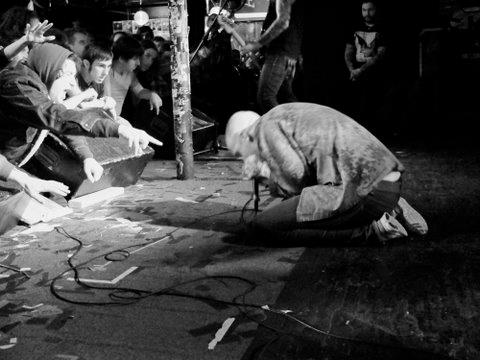
Kurt records bands, engineers bands that he believes in, and tries to make the best records he can. I try to create art and music that is an extension of what I've done previously. I try to run a record label that pioneers, or not pioneers, but champions a certain kind of character and creative mindset that....that even though it's diverse, it has the values that I wanna see in bands. That I don't necessarily think are out there everywhere. And so I think that as long as we stay motivated and keep doing these things, then you know, we're relevant, and these things are relevant.
RF.net: Perhaps where you felt like, maybe not creatively at your peak because then you're just gonna say the new album, but in terms of the album that you think is the most important Converge album?
Jacob: Always the most recent one. It's not a cop-out, it's the truth, because I feel that a band shouldn't necessarily be releasing things that are a step down from prior releases. I wonder how it would feel if someone sat here, let's say that I was a different person, I don't even know who, just a random dude Z from a band, and you asked that question. And they'd be like, yeah maybe like our third, THAT was the record that really excited me, and you've done like four other records since then.
RF.net: I believe that's what Fat Mike says sometimes in interviews for NOFX? But then again he is weird.
Jacob: Maybe. But their songs are also... like they follow a certain kind of formulaic thing that doesn't really change, and that's what their intention is. But our band is a little more organic, and kind of builds and changes as it grows. It's like a snowball, it keeps moving. A little bigger and a little oddly shaped as it moves. But imagine being that guy. I don't know if I could be a person that could say that. I wouldn't feel good about myself. I wouldn't want to go up and play songs after like 300 albums that didn't mean anything to me.
RF.net: Well perhaps. But there must be people out there where the album also mean to them, but they just figured that even though they really like this album, they have that one which is their favorite, for whatever reason?
Jacob: I'm sure there's plenty of people like that. But they all serve the same purpose in my life. They've all come at a time in my life where I put everything I have psychologically into them, emotionally into them that's going on in my life. It's like a diary of sorts. It's a simple outlet for me to be able to document those things, and hopefully process some, even negative or complex things in my life, in a positive way. So every album has done that. Whether I was 18 years old, 20, 24, 27, 30, whatever. I've never got to a point in my life where I didn't feel something that was complex enough to motivate me to want to write and to be part of music.
I've said this before in other interviews in the last six months or so, I always find it to be really ironic that people are praising that record, because I would over 90% of the press for that record when people did cover it, it's funny and I know this because after the record came out a year or two later, the person who did the press for the album for the record label sent me this big book, this big binder with all the press on the record. And all of it is scathing 4/10 reviews, like "what is this shit", "what's this fucking noise". And it came from all places. It came from places like the metal world that didn't understand our style of playing. It came from the hardcore world, where people felt we were too emotional or too punk, and it came from the punk world who felt we were too hardcore and too tough. We didn't fit in anywhere and everybody was kind of smashing and hating it. So it was really interesting how over time people have grown to understand that record. I appreciate that, I'm grateful for that. But again, it didn't matter, we still kept making records and doing our thing. People always have a favorite record, people always have a favorite entry point for bands. Especially as a band grows. There are kids now that I've met at shows that are like 16 years old, where our new record is their first experience with our band. And it's totally valid. There are other kids who we're playing to in the middle of the US who will scream stuff at us like "you haven't done anything relevant since 1997", you know? Because to them, their entry point into understanding our band and knowing what we're about was at that point. Everything before or after that is less valid. And as part of the people who made the records, especially the core four that we are, that we have been for like 12 years now...what we want is what matters. Everything else is just completely secondary.
So yeah, I don't know. As far as trying to write another Jane record, I think we do, in a way. In the sense that, and I can answer the question that way too, we don't repeat ourselves, but every record is an intensely personal record. I'm not gonna re-live my life a thousand times and have the same experiences a thousand times. But I'm gonna have emotionally serious things that I discuss in songs that I work through in songs. I hope they're not all the same. If they're all the same for 15 years, then there's something really fucking wrong with me. Like "what's this guy doing wrong, he's gotta figure out his life a little bit." But just because you solve one aspect of your life, doesn't necessarily mean that you're gonna solve one of the other aspects. And so there's always something to write about, and there's always something to process in a creative way.
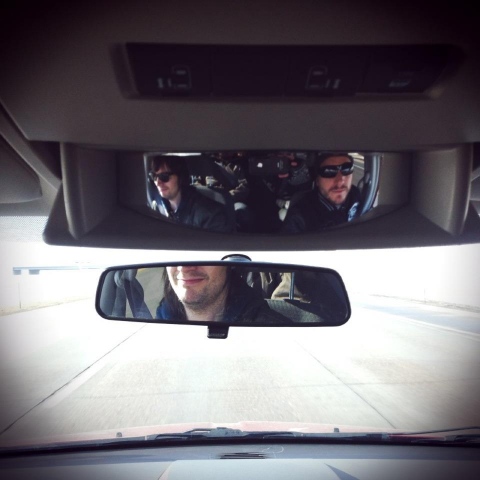
And we did that. Basically 2000-2001, when Ben joined our band first, and then when we asked Aaron, our second guitarist to leave our band, that was spring of 2001, since then with the four of us it has been this one trajectory. We all have the same sort of idea of the band and what we want it to be, and we just work towards that. So those are what I would call the three little chapters in our life. It doesn't mean that the records that we did when we were kids weren't relevant. They had interesting moments, and I think we're one of the only bands that you can follow a lineage like that, and a history to a timeline where we were kids. I was like 13-14 years old. I didn't know what I was doing! And then we've just moved from that, you know? I'm 36 now, so it's over 20 years, it's a lot of time.
So yes, people can take it however they wanna take it, but those are the little divisions that I've seen. The little steps that we've had, the little chapters so far. And then one day we'll just stop.
RF.net: Anytime soon?
Jacob: I don't think so. We feel pretty motivated. We still enjoy playing live immensely. I think we still feel we're improving as artists and as sort of communicators as well. I think that's important. I don't think you should ever be content like that. You should always be moving forward. But I think when you just no longer feel that drive to play, or at least to write together. We don't practice all the time, we don't spend a huge amount of time together. But then we've always been that way. We've always kept to ourselves when we're home. But when we come together, we do it for a common goal, and I think we're still motivated for that common goal, so we still have life left in us.
As far as merchandising as a term, we haven't really made that's ridiculous. We're not a band that makes weird accessories and stuff like that. We've always wanted to make stuff that we'd wanna wear, or that we would think is cool as people who are fans of bands. Like I know if I walked up to see a band and they were selling like some weird party favor, or some weird little accessory, sometimes you think those things are corny. So we just try to do stuff that we dig, that we would want to buy ourselves as fans of bands. We buy shirts, we buy sweatshirts, we wear band shirts, we buy records, so we try to keep it simple like that. As far as the volume of those things, I don't think it's really any more than any other bands. I think you just see a lot of it, and that's a big thing, but again, I can name a lot of other bands that have, you know, hundreds of t-shirt designs and two records, you know what I mean? [laughs] But generally my rule has always been, I like to make a few shirts for a tour. And then next tour make a few more. You multiply that by 20 years of being a band, or at least 15 years of playing, it starts growing, and that mass starts to get pretty huge after a while.
Personally, I think I've kind of grown with it and within it as well, so I've just kind of worked with it, we knew it was something that added value to our lives.
RF.net: As the last Converge album.
Jacob: Yeah [laugh], the very last one will be the best of. We always joke that we'll know when shit's about to go south when we're like "you know what? Let's do Jane Doe 2", and just like a movie sequel but with a two at the end. And then like "You Fail Me Two", and just start repeating stuff. But we'd never do that, it's not fun to us.
There's a lot of variety out there, people need to open up to it a little bit.
RF.net: Have you noticed any new bands, you being the record executive here, that you think have the potential to become the next Converge in the future. Not necessarily in terms of sound, but in terms of the effect or impact, so to say.
Jacob: Well, music is tough because a lot of it is media driven. So for example, this world of punk rock and hardcore couldn't exist if it started today. Say this kind of music didn't exist and we still had base rock'n'roll, and then all of a sudden you put on the Sex Pistols up there today for the first time ever to start to shake things up. It wouldn't evolve in the way that it did back then, because we don't have the same media driving it. Who knows, maybe you could be bigger because of social networking, but a lot of the growth in punk rock and hardcore came from hearsay from what you know and what you didn't know. You'd almost build up anticipation to see a band, to go to a certain city to feel the presence of a show in New York, for example. New York City was the mecca of hardcore, so in 1992 when I was a kid, when I got to go to New York for the first time and see a show at CBGBs, I was enamoured, because I overromanticized it in a good way. I was in this dirty crappy club that had so much history that I loved very much, and I saw so many amazing pictures from a place like that.
That kind of thing probably wouldn't develop as it did back then today. I don't know if you would get punk rock and just heavy music developing as you did back then. I also think that bands had a longer gestation period, where now a band, say you decide to start a band tomorrow. You could write five songs in the next five days, doesn't matter how good or bad they are, and record them in some capacity on your laptop, and get them on the internet and share them with as many people as possible, and you could have more downloads in 2 hours than some bands have ever sold records. Doesn't mean their music is being heard, but it is being consumed in some way. It's just a different thing. Back then, you would work so hard on art and music, building the character of what you want out there, carefully crafting the band that you want to be, and then presenting it. You don't really get that anymore. You get bands that have to immediately be out there. A band will be together for 6 months, and they're on fucking tour across the world. That changes the game a lot.
Are there bands with that kind of spirit that we had when we were kids? Yeah, I think so. I think you see it all the time. I think what's kind of wild is that there's a bunch of peers that are still bands that are all still playing and still doing relevant stuff. And you still see all of us here doing these relevant things that are kind of driving things. And there's a disparity more and more, and we wanna see younger bands pick up the reigns and do some things. I had a kid in New York the other day when we were playing a show, started yelling like "NEVER BREAK UP, NEVER STOP DOING STUFF", and I was on stage and stopped, and I was just like: "Hey, I appreciate that. But one day, we are gonna stop. We are gonna stop, because we are physically not be able to do it anymore. We're just gonna be tired. But take that feeling that you have and start a band. Get motivated. Be a creative person. If this feeling is what you love, perpetuate it! Make it grow, make it better. Take it on, this is the starting point. This show. Go home and start your band tonight. Call up your friend that plays bass, and they will join your band". I think that kind of stuff is just super important, and I think that people are getting lazier and lazier sadly, and not doing that. They either will do these temporary things where they want instantaneous success, and they don't wanna put in the work, or they just don't work at all.
But there are younger bands that are out there doing it right. I think Touché have been doing it right. They've been working very hard. They toured almost for a year straight last year. That's crazy. My band's never done that. We'd melt down probably. They were just out on tour. They started this tour in Indonesia, this tour, and then they met up with us like 10 days later, and they've been on tour since. They've been through weather extremes, they went from 120 degree normal days to this. Can you imagine that? It's unbelievable, in just four weeks time. That band called Orange Kids that we just released a record for, I think they are intensely interesting. They are super young, the name kids sort of implies that, but they are young, between 18 and 21. But what I like about their approach as for the spirit and the soul of what they do, is that it's free of all rules. They do whatever the fuck they want. They wanna play a 30 second song and play as fast as possible? They play a song that's that fast. They wanna have a song that's really doomy and down-trodden? They do that. If their drummer Jamie wants to sing, he sings a whole song. If the guitarist wants to sing a whole song, he sings a whole song. They do whatever they want. I like that spirit of experimentation that they're just kind of like out there, multi-talented, and just playing to play, because they want to. I think that's something what's kind of missing a lot, where people spend a little too much time just trying to emulate something else. They're just like "we don't give a fuck, we just like heavy music and we're just doing it". Those are two that I like personally.
RF.net: Well that was my last question. Thank you very much for the interview.
Jacob: Thank you for your time, I appreciate it. And hopefully my run on sentences and tangents weren't too bad, and you can make some sense of it.
 Twitter
Twitter Facebook
Facebook